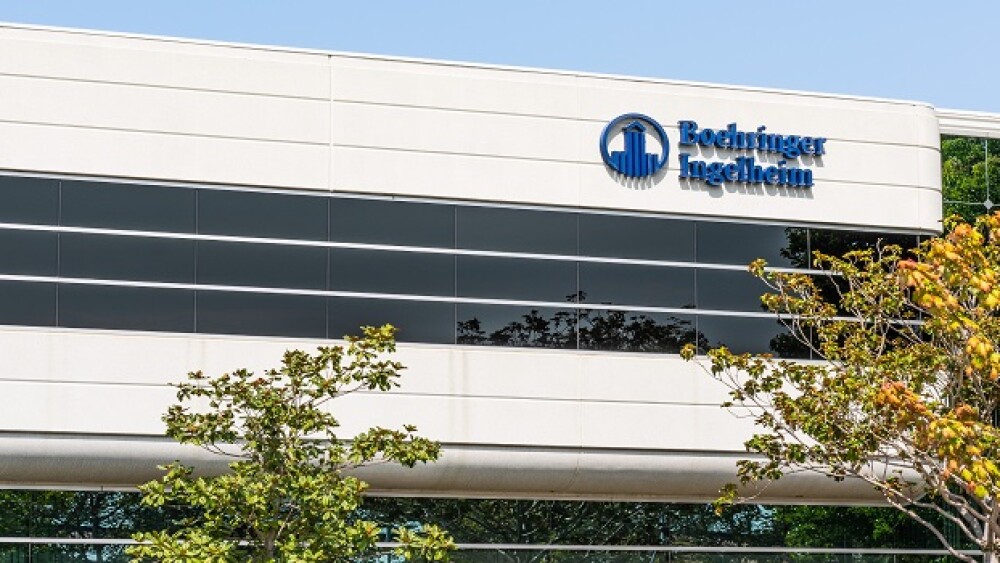STRASBOURG, FRANCE--(Marketwire - February 17, 2009) -
| Highlighted Links |
|
TRANSGENE CONFIRMS LONGER SURVIVAL FOR PATIENTS TREATED WITH TG4010 IN ITS ONGOING PHASE IIB NON-SMALL CELL LUNG CANCER TRIAL
At 21 months of median follow-up, confirmation of a statistically significant overall survival benefit for a major sub-population of patients
Strasbourg, France, 17 February, 2009 - Transgene S.A. (Euronext Paris: FR0005175080) today announced additional data from the ongoing controlled Phase IIb clinical study of its therapeutic vaccine TG4010 (MVA-MUC1-IL2) as an adjunct to first line chemotherapy in patients with advanced non-small cell lung cancer (NSCLC).
The data at 21 months of median follow up confirms a statistically- significant 6-month increase in median survival (17.1 months in the experimental arm versus 11.3 months in the control arm) in patients with normal levels of activated Natural Killer cells at baseline (some 75% of the patients in the trial), a sub-population identified by Transgene’s biomarker programme([1]). The measurement of this biomarker is based on flow cytometry, a technique routinely used in hospital laboratories.
The results are consistent with previous reported data on the efficacy of the drug after 17 months of median follow-up, which were released at ESMO([2]) in September 2008. Although the study is not yet closed, the clinical data is not expected to change significantly from what is reported today.
Furthermore, results from the biomarker programme provide evidence for a Th1([3]) dependent pathway of activity for TG4010 in cancer patients.
Transgene expects to submit more detailed clinical and biological data at forthcoming international scientific meetings.
The company plans to have meetings with the US Food and Drug Administration and the European Medicines Agency during the second quarter of 2009 in preparation of a phase III programme in metastatic NSCLC.
Philippe Archinard, Chief Executive Officer of Transgene said : “We are pleased by the continued efficacy of our vaccine on such an important sub-population of patients suffering from advanced NSCLC and by the progress made in our partnership discussions with potential pharmaceutical companies.”
About the Phase IIb trial
The Phase IIb trial is a randomized, open label and controlled study designed to assess the efficacy of TG4010 in combination with cisplatin and gemcitabine compared to the chemotherapy regimen alone. The trial completed the enrolment of 148 patients at the end of May 2007 and was conducted in 27 centres located in France, Poland, Germany, and Hungary. The patients had NSCLC of all histological sub-types expressing MUC1, either stage IIIB with effusion (8%) or stage IV (92%), and had not received prior systemic treatment for their advanced disease. Half of the patients were randomized to receive the combination regimen of TG4010 vaccine plus chemotherapy (experimental arm). The other half of the patients received chemotherapy alone (control arm). The statistical primary endpoint was to observe at least 40% of patients free of progression six months after randomization in the experimental arm. The primary end point was met with 44% of patients in the experimental arm showing progression-free survival at 6 months against 35% in the control arm. Secondary endpoints were response rate, time to progression, overall survival, safety, immunological responses, proteomics and transcriptomics.
Further information on the phase IIb results for TG4010, including previous press releases, the ASCO and ESMO posters, and further information on the ADNA programme are available on Transgene’s website (www.transgene.fr).
About TG4010 cancer vaccine and Non-Small-Cell Lung Cancer (NSCLC)
TG4010 (MVA-MUC1-IL2) uses the Modified Vaccinia Ankara virus vector, a poxvirus that combines distinguishing advantages for an optimized systemic vaccination:
- MVA is a highly attenuated strain which has been tested extensively in humans as a smallpox vaccine and is known to strongly stimulate innate and adaptive immune responses to antigens.
- MUC1 is a major tumor-associated antigen that provides a viable target for immunotherapy.
- TG4010 expresses the entire MUC1 gene sequence and has the potential to generate an immune response to all antigenic epitopes of MUC1.
- The sequence coding for the cytokine Interleukin 2 (IL2) is included to help stimulate specific T-cell response.
Lung cancer is a major public health issue with over 1 million new cases a year across the world, and accounts for some 350,000 deaths per year in Europe and the United States alone. Around 80% of lung cancer patients are diagnosed with non-small-cell lung cancer. Of these, some 60% overexpress MUC1, which is the target for TG4010. The efficacy of current treatments for NSCLC is limited, and TG4010 is targeting first line treatment of metastatic NSCLC in combination with chemotherapy. Other NSCLC stages of disease and all other epithelial cancers expressing MUC1 (prostate, breast, kidney, pancreatic and colorectal cancers) are also potential future targets for TG4010.
About NK Cells
Natural Killer cells (NK cells) are effector lymphocytes of the innate immune system that control several types of tumors and microbial infections by limiting their spread and subsequent tissue damage. Recent research highlights the fact that NK cells are also regulatory cells engaged in reciprocal interactions with dendritic cells, macrophages, T cells and endothelial cells. NK cells can thus limit or exacerbate immune responses.
About Transgene
Transgene is a France-based biopharmaceutical company dedicated to the development of therapeutic vaccines and immunotherapeutic products in oncology and infectious diseases. The company has three compounds in Phase II trials (TG4001/R3484, TG4010 and TG1042) and one compound in Phase I studies (TG4040). Transgene has concluded a strategic partnership agreement with Roche for the development of its TG4001/R3484 therapeutic vaccine to treat HPV- mediated diseases. Transgene has bio-manufacturing capacities for viral-based vectors and technologies available for out-licensing. Additional information about Transgene is available on the Internet at www.transgene.fr.
Cautionary note regarding forward-looking statements
This press release contains forward-looking statements referring to the planned clinical testing and development of one of Transgene’s therapeutic vaccine candidates. However, clinical testing and successful product development depend on a variety of factors, including the timing and success of future patient enrolment and the risk of unanticipated adverse patient reactions. Results from future studies with more data may show less favorable outcomes than prior studies, and there is no certainty that product candidates will ever demonstrate adequate therapeutic efficacy or achieve regulatory approval or commercial use. For further information on the risks and uncertainties involved in the testing and development of Transgene’s product candidates, see Trangene’s Document de référence on file with the French Autorité des marchés financiers on its website at http://www.amf-france.org and Transgene’s website at www.transgene.fr .
([1]) The biomarker project is partly financed by an OSEO (French agency specialised in innovation & development funding) grant as part of the ADNA programme (Advanced Diagnostics for New Therapeutic Approaches).
([2]) European Society for Medical Oncology.
([3]) Th1 are T cells producing cytokines involved in cell- mediated immunity. Naive, inexperienced T lymphocytes can differentiate into either Th1 cells or Th2 cells. Th1 lymphocytes drive a cellular immune response (including Cytotoxic T Lymphocytes) which fights viral infections and cancer. The differentiation of naïve T cells into Th1 is controlled by cytokines such as Interferon gamma.
This information is provided by HUGIN
For further information, please contact:
Transgene
Philippe Archinard, CEO
+33 (0)3 88279122
Philippe Poncet, CFO
+33 (0)3 88279102
Elisabetta Castelli, Director IR
+33 (0)1 44085505
Capital MS&L
Mary Clark, Director
+44 (0)20 7307 5336
Anna Mitchell, Senior Consultant
+44 (0)20 7307 5346




